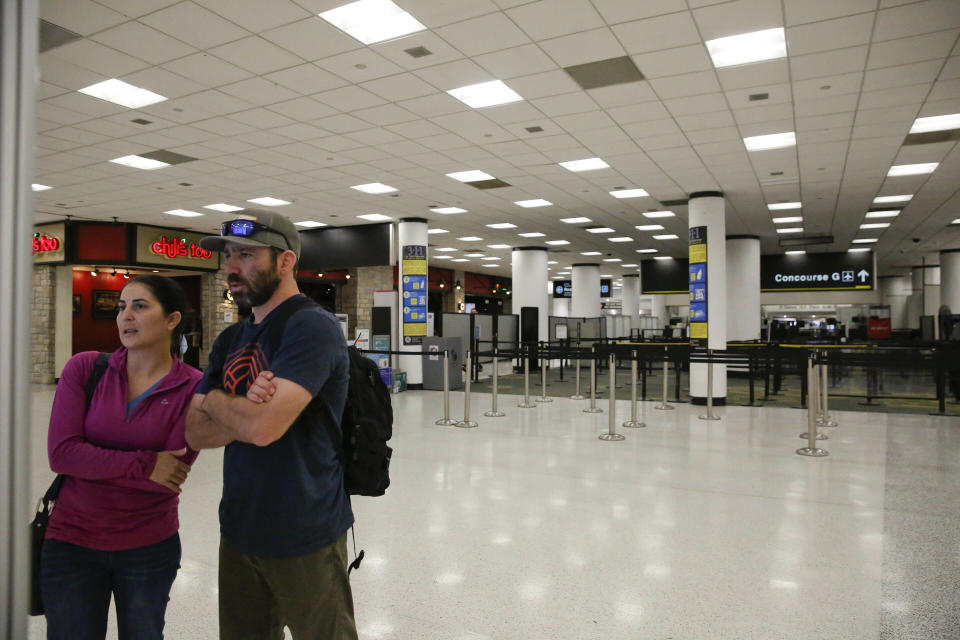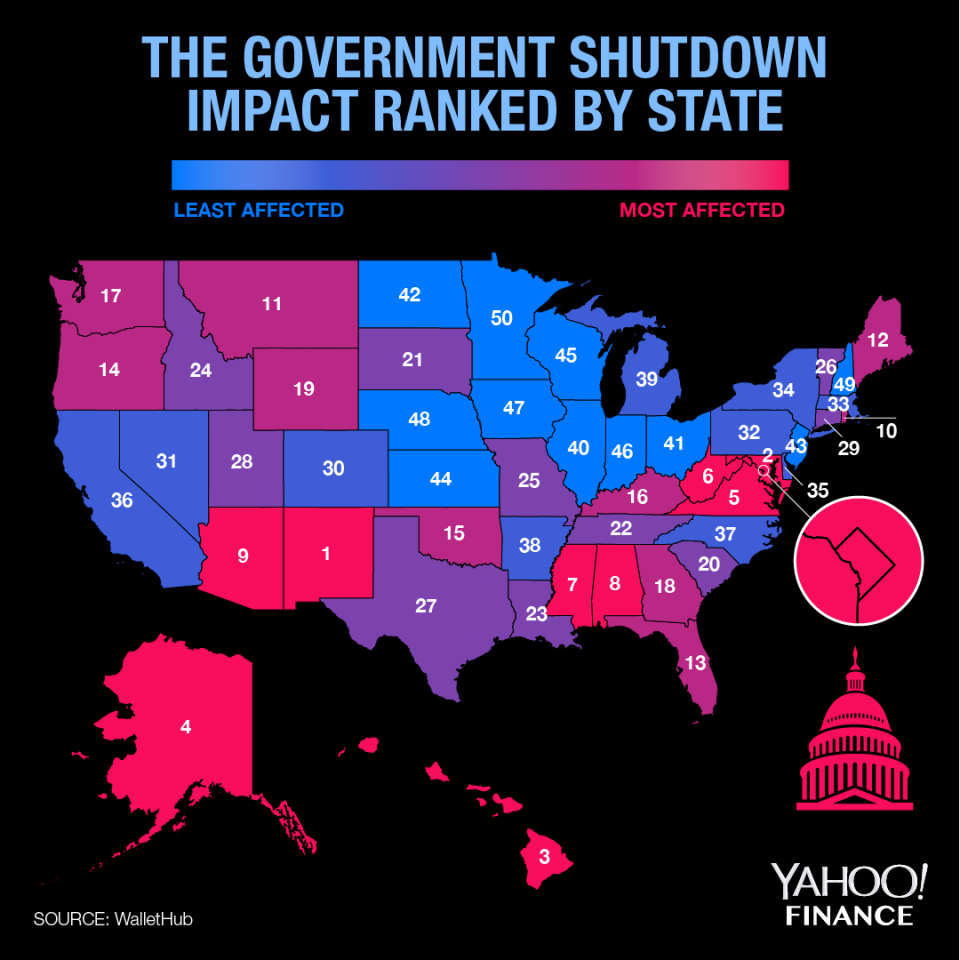Longest-ever shutdown starting to create large-scale problems for Americans
This post was updated.
It’s day 27 of the longest-ever shutdown in history. Americans have been feeling the effects in various ways. But it may be about to get a little worse.
The agony stemming from the political standoff in Washington over a $5.7 billion wall is emanating from the almost 800,000 workers — who are on furlough indefinitely or working without pay — to ordinary Americans around the country, as various government agencies get crippled by the stalemate.
President Trump has indicated that he would “never back down,” while others think the shutdown “makes absolutely no sense whatsoever.”

“Everybody is impacted,” Andrew Jerome, spokesman for the National Farmers Union, told Yahoo Finance last week.
Farmers who receive bailouts as compensation for the adverse effects of the tariffs are being deprived of funds; travelers are affected by long wait times at airports suffering from staffing issues; in some small rural schools that receive smaller levels of funding, middle and high school students will no longer have fresh produce for lunch as the school system grapples with the shutdown.
The shutdown’s effects are far and wide.

More generally, economists are worried about the detrimental effect the shutdown could have on the U.S. economy. “To reflect the economic impact of the government shutdown,” Bank of America Merrill Lynch analysts wrote last week, “we adjust our 4Q GDP tracking estimate a tenth lower to 2.8%.”
Others worry about how the shutdown will weigh on the Fed’s mind. Capital Economics’ senior U.S. economist Michael Pearce wrote in a note that “with the December retail sales and housing starts data postponed, and the usual data collection by the BEA and Census Bureau still suspended…” he warns that “it is increasingly unlikely that the fourth quarter GDP figures will be released on schedule later this month.”
That adds a wrinkle to the Fed’s decision-making process since “it’s missing half of the data.”

Government shutdown hinges on what Trump does
Last week, President Donald Trump went straight to the American people to argue why he believed the U.S. needs a southern border wall. The prime-time address was his strongest effort to push for the $5.7 billion required to fund the border wall, a proposal that is staunchly opposed by the Democrats who now have control of the House.
Mounting resistance on both sides could potentially lead to the president to exercise emergency powers to circumvent Congress to build the 2,000-mile wall, though tensions were somewhat soothed yesterday when the Internal Revenue Service said that the shutdown would not stop the agency from issuing taxpayer refunds.
While federal employees in Washington D.C. and Maryland are particularly at risk given their proximity to the seat of the government, states with big military bases like Alaska and Hawaii are also likely to feel the pain as the shutdown drags on.

This post was originally published on January 8.
Aarthi is a writer for Yahoo Finance. Follow her on Twitter @aarthiswami.
Read more:
The government shutdown is hitting these U.S. states the hardest
Expert: Federal employees are ‘very concerned’ about a long shutdown
Follow Yahoo Finance on Twitter, Facebook, Instagram, Flipboard, LinkedIn, and reddit.

